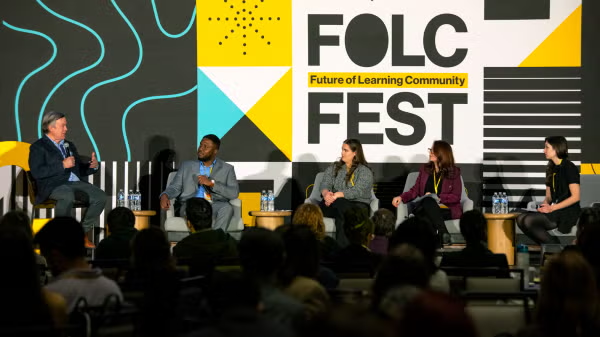Department of Economics Dean’s Medalist embraces math, leading to analyst job

Logan Pugliese. Photo by Meghan Finnerty.
Editor’s note: This story is part of a series of profiles of notable fall 2024 graduates.
At the start of his academic journey at Arizona State University, Logan Pugliese enrolled as a mechanical engineering major. However, he found it was the mathematics side of engineering, not the science, that excited him most.
“When I would do proofs about why specific applications of mathematics hold for engineering, I found myself very engaged,” Pugliese said. “However, I only cared a little about the science part of engineering. These were applications like physics or chemistry, where the math was exciting but different from the actual application.”
“Furthermore, I found economics fascinating when I took macro and microeconomics in high school. I knew math was heavily involved in economics, so I added it as a second major,” he said.
The excitement for economics and mathematics reflected in Pugliese’s coursework, leading him to be chosen for the Department of Economics’ fall 2024 Dean’s Medalist. He will graduate with bachelor’s degrees in both economics and mathematics.
“Logan's work in econometrics was consistently excellent. His assignments and exams demonstrated careful attention to mathematical detail, strong analytical reasoning and good economic logic,” said Nicolai Kuminoff, associate professor in the department and Pugliese’s professor.
Learn more about Pugliese and his time at ASU in his own words.
Q: What is something you learned while at ASU — in the classroom or otherwise — that surprised you, that changed your perspective?
A: I learned this phrase at the University of Chicago a few summers ago: “Math is not a spectator sport.” This phase speaks on the necessity of repetition to obtain a mastery level of understanding of a given topic like math. However, I believe this phrase applies to math and all of higher education. To get better at a topic or class, it is not enough to take notes or watch the professor work through problems, i.e., being a spectator. Instead, it is crucial that you also work through problems and lectures to grasp and understand whatever you want to learn thoroughly. This phrase revolutionized how I studied for exams and learned content in my classes.
Q: Why did you choose ASU?
A: I chose ASU because they offered me the most scholarships from the places I applied to. I also really wanted to go out of state, but I could not afford to go out of state. Since ASU is about two hours away from where I grew up, it was as close to out-of-state as I would get for the price of in-state tuition.
Q: Which professor taught you the most important lesson while at ASU?
A: My most influential professor during my time at ASU was Taylor Hines. Hines is my boss at the Barrett Math Center and every week, he provides excellent advice for navigating college and life. Specifically, he taught me a lot about patience and being helpful without being overbearing, which were essential skills for tutoring mathematics.
Q: What is the best piece of advice you would give to those still in school?
A: Focus on learning how to learn and embrace challenges — they help you grow academically and prepare you for real-world problem-solving. Build relationships with peers, professors and professionals, as that network can take you a long way in the future. Prioritize your mental and physical well-being and don’t be afraid to fail — failure is one of the best teachers. Stay curious and explore interests outside your field, as diverse experiences often spark innovative ideas.
Q: What was your favorite spot on campus, whether for studying, meeting friends or just thinking about life?
A: I like the fourth floor of Hayden Library or the upstairs honors hall at the Barrett residential complex.
Q: What are your plans after graduation?
A: I will start working full-time for Charles Schwab as a risk management data analyst in January. Additionally, I will continue to learn as I prepare to take the first CFA (Chartered Financial Analyst) exam in May. Furthermore, after graduating, I plan to use this time as a break from standardized education and a chance to learn how to apply my skills in the industry. However, I will return to higher education to obtain my master's and PhD in statistics after a few years in the industry.
Q: If someone gave you $40 million to solve one problem on our planet, what would you tackle?
A: If someone gave me $40 million to solve one problem on our planet, I would focus on improving education for all, especially at the foundational level. There’s a clear gap in the quality of early education, which directly impacts a student’s ability to succeed in higher education. For example, in math, foundational concepts like algebra form the building blocks for understanding calculus and more advanced topics. If students don’t receive high-quality instruction early on, it becomes much harder for them to thrive and develop a love for learning. Addressing this issue would create a more robust educational foundation, empowering individuals and benefiting the world.
More Sun Devil community

FOLC Fest 2025 explores Principled Innovation, leadership and learning at ASU
"Principled Innovation is about using our creativity, knowledge and resources to make decisions that ultimately benefit humanity — not just in the short term, but for generations to come."That's what…

These Sun Devils are inspiring the next generation of female athletes
This year, Women's History Month is celebrating the theme “Moving Forward Together! Women Educating and Inspiring Generations.”Women in sports inspire fans of all ages through their accomplishments…
Founders’ Day 2025 celebrates legacy and innovation at ASU
"Honor the past, celebrate the present and invent the future." This motto encapsulates the spirit of Founders' Day, a signature event hosted by the Arizona State University Alumni Association to…

